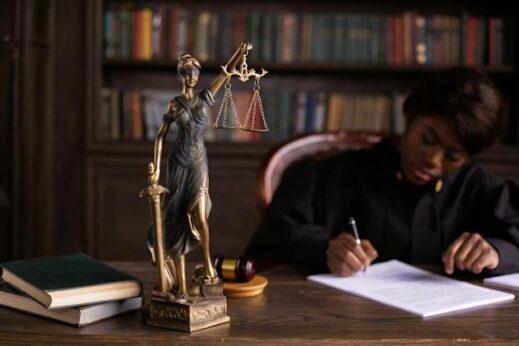When a marriage is irretrievably broken, it is ideal for both parties to resolve their issues, finalize their divorce, and move on with their lives. Consensually resolving a dissolution of marriage is always preferable to litigating divorce issues, especially sensitive ones surrounding money, family homes, child custody, and more.
But sometimes, when spouses cannot agree on one or more issues, proceeding with a contested divorce is the only option left on the table.
Our Orange County contested divorce lawyers can help you resolve every issue that comes up in the dissolution of your marriage. Work with our experienced divorce attorneys for a smooth transition into your next chapter.

What is Contested Divorce?
The term “contested divorce” refers to when there are disagreements about some or all of the issues involved in a divorce. This situation might entail a custody battle over minor children, issues with asset distribution, concerns about alimony, and more. If you don’t agree on every issue, including the custodial or visitation schedule, or the amount of child or spousal support, you have, by definition, a contested divorce.
While many couples might hope to resolve their differences easily, not every marriage is eligible for an uncontested divorce. If you have any of the following situations in your marriage, you may need to proceed with a contested divorce, even if the split is amicable:
- Either spouse is a lease holder on a property for less than one year
- Either spouse has unpaid debts of more than $6,000
- The grounds for divorce are anything other than “irreconcilable differences”
Either spouse plans to seek alimony or child support payments from the other party
Can a Spouse Contest a Divorce in California?
In California, one party cannot contest the divorce to prevent it from happening. It takes two people to agree to marry, but in the end, it only one to decide to divorce. One party can complicate the divorce process, and delay the process, but you cannot stop a divorce if one party wants to be divorced in California.
However, there are many complex issues that arise from two people entwining their lives together in a marriage.
In Orange County, one spouse can contest almost every element of the dissolution of marriage, even though the divorce proceedings can be initiated by just one party. Both parties can also contest the proceedings and refuse to agree to the terms of divorce.
On What Grounds Can You Contest a Divorce in Orange County?
In Orange County, you have three main grounds upon which to contest a divorce:
- Factual disagreement: Examples of a factual disagreement might include appraisals of property that are considered either too high or too low by one or both parties, hidden assets, disputes over child care, child safety, and more.
- Legal disagreement: Legal disagreements can include problems enforcing prenuptial or postnuptial agreements, garnishment of wages for child support, alimony calculations, or simply the fact that parties or their attorneys disagree with the other side about what the law actually is or what the judge may order in any given situation.
- One or both spouses refuse to settle: There does not have to be a concrete reason for one spouse to contest certain elements of a divorce. Some spouses have to go through a legal battle simply because they cannot settle their issues for one reason or another.
What Happens in a Contested Divorce in Orange County?
In a contested divorce, you will have the opportunity to go through a discovery process to try to unearth hidden assets, request the production of documents, take oral depositions, ask the other side to answer specific questions under oath, and more. And while both parties may waive their final declarations of disclosure in an uncontested divorce, in contested divorces where both parties go to trial, there will be a much more robust exchange of detailed information that is required in order to create a fuller picture of assets, debt, property, best interests of any children, and other factors for the judge to consider, before trial can start.



Divorce Litigation vs Mediation
Mediation is one possible option that circumvents the trial process, and can be a powerful tool when children are involved in a divorce. Mediators are professionals available to help you and your ex discuss your differences and attempt to create a divorce agreement that both parties are satisfied with. In the context of a contested divorce, mediation requires compromise. A skilled Orange County contested divorce attorney can help you pick your battles and advise on which issues to be more assertive on.
Litigation is more costly and time consuming than mediation, but sometimes, as mentioned above, we do not have a choice. When the parties simply cannot agree on certain issues, litigation will get those issues resolved at trial. Issues such as certain financial issues, questions about the value or division of marital property, ensuring fair child support and alimony payments, and other irreconcilable differences will be determined by a judge if you are unable to come to an agreement before trial. In contested divorces, certain key issues can be subject to litigation, even if the spouses agree on other elements surrounding their separation.
Through the litigation process, the parties are often able to obtain all the information they need to resolve their divorce issues without actually going to trial. Once both parties go through the discovery process, they will more clearly understand the facts of their case (such as how much their property is actually worth and how much a support order should reasonably be), lawyers and the court system (including judges) can assist spouses in resolving their case – while in litigation but without actually requiring a trial.
What Issues Can an Orange County Contested Divorce Address?
A contested divorce in Orange County, there is a disagreement between one or both spouses about any of the following factors:
- Property division
- Handling of debt
- Child custody and visitation
- Child support
- Alimony
- Domestic violence and restraining orders
- And any other issues that the parties cannot agree upon.



Reasons to Contest a Divorce
While you may be hesitant to enter into a legal battle or disagreement with an ex-spouse, there are several very important reasons why you may want to contest a divorce in Orange County, CA. Failing to do so can put you and your children in a more precarious position in the future than either of you deserve. Any of the following are valid reasons to contest an Orange County divorce:
- The discovery of hidden assets
- The proposed child custody plan and visitation schedule do not meet the child(ren)’s needs or puts them in harm’s way
- The proposed spousal support agreement would leave you at a significantly unfair or disadvantaged position post divorce
- Your ex is unwilling to compromise on reasonable divorce terms
How to Contest a Divorce in Orange County
Filing for a contested divorce in Orange County follows the exact same process as filing an agreed-upon divorce. However, unlike in an uncontested divorce, the paperwork officially dissolving your marriage will not be finalized until the disputed issues are resolved, usually after a trial. For this reason, some people choose to work with mediators or with contested divorce attorneys in order to help them come to a conclusion that allows them to end the marriage in the least painful and protracted way possible. At Pinkham & Associates, we are highly experienced at fighting for our client’s rights, while always being cognizant of the time, cost and angst in fighting over issues that can and should be settled outside of court.
What to Expect from the Contested Divorce Process in Orange County
While not every divorce is the same, the contested divorce process in Orange County usually follows the following procedure:
- The divorce Summons & Petition are prepared, filed, and upon filing, it is served on the other party
- The other party will respond to the petition by filing a Response to Dissolution often through their own lawyer
- Then, both parties are mandated to produce what are known as Declarations of Disclosure and serve them on the other party within 60 days
- Then the discovery process begins, which involves bringing to the table relevant facts, appraisals, and assessments of income, assets and debts
- Requests for Orders are filed to obtain temporary orders for Custody, Child Support, Spousal Support and oftentimes, attorneys fees
- Pre-trial motions and hearings take place regarding other contested issues
- Both parties and their attorneys have a chance to negotiate, and potentially reach a settlement agreement before the trial occurs
- If a settlement is not reached, both parties and their Orange County contested divorce lawyers prepare for trial
- There are several pre-trial hearings to make sure the parties are in fact, ready for trial, such as a Trial Setting Conference and possibly several Mandatory Settlement Conferences
- A court trial occurs, and after hearing all the evidence from both sides, a judge decides contested issues
- Both parties have an opportunity to appeal the judge’s ruling should there be grounds for an appeal



How Can an Orange County Attorney Help in a Contested Divorce?
An Orange County attorney can help spouses involved in a contested divorce in any number of ways throughout the filing, discovery, negotiation, settlement, and trial stages of the process. The Orange County contested divorce attorneys of Pinkham & Associates, APLC are highly experienced in keeping the focus on your best interests and what you need during what is often a challenging and emotional time. Our team has over 80 years of combined litigation experience and have helped well over 1,500 Orange County clients through difficult cases as well as amicable ones involving just a few narrowly contested claims. Pinkham & Associates can provide the expert advocacy you need to get through an Orange County contested divorce as smoothly as possible.
Empathy during a Challenging Time
Many of our Orange County contested divorce lawyers have been through this process themselves. We know divorce can be a challenging experience, especially when it’s contested. Even in a contested divorce, a great family law attorney will fight to protect your rights while simultaneously suggesting ways to minimize cost and conflict.
Aggressive Representation in Court
There are only two ways to get through a divorce:
- The parties agree one way or another outside of court; or,
- The parties go into court, present evidence, and ask the judge to make the decision.
If you and your spouse are unable to resolve one or more issues by means of negotiations, assistance by a mediator, arbitrator, or other third party, you will be forced to go into court and make your case, present witnesses and your evidence, and have the judge decide the issue. If this happens, you want experienced, tough litigators standing by you every step of the way.
Protecting What’s Most Important to You
You and your family deserve the utmost respect, attention, and care during a contested divorce. One of the main reasons most people work with a contested divorce attorney is to protect what’s most important to them. Whether your top priority is your children’s well-being, the small business you’ve built, your mental health, your real estate or other assets, your retirement or other investments, or family wealth, our Orange County contested divorce attorneys are eager to help prioritize your needs. When working with Pinkham & Associates, you’re no longer on your own during a contested divorce.
You have our dedicated legal advocates looking out for whatever you decide is most important to you throughout this process.
What to Look for in an Orange County Contested Divorce Lawyer
Obviously, litigation is more costly and time consuming, but often we do not have a choice. When both spouses cannot agree to settle, a case must move forward to trial. Because of this, it is important to pay special attention to whether the other party, their attorney, or worse yet, your own attorney, is “over-litigating” a particular issue or the entire divorce case in general.
The majority of contested divorce attorneys respect a client’s time and budget considerations. However, there are certain divorce litigation attorneys who thrive on fighting just for the sake of fighting and earning themselves additional attorney fees. These tactics seldom do either party any good and always drive up the cost of a divorce.
Orange County Contested Divorce Lawyer: FAQs
Attorney Douglas Pinkham has been practicing family law in Orange County since 1999. Here are some of the most frequently asked questions we hear about contested divorces in OC:
How long does a contested divorce take in California?
A contested divorce in California can take longer to handle than one where both parties agree on all the issues, but often it is a more realistic course of action for many couples at the end of a marriage. On average, divorce proceedings in Orange County last about 12 to 18 months before the final dissolution of the marriage. However, a contested divorce will last until both parties agree to the terms, or until the end of the trial. For this reason, you want the strongest, most effective negotiators and legal advocates by your side during the process to help you settle debates wherever possible and ideally come to a fair settlement sooner rather than later.
Is it worth contesting a divorce in Orange County?
The short answer is yes. It is always worth contesting a divorce in Orange County if you have any concerns about the terms of your divorce. Dissolving a marriage can have an enormous impact on your financial position, your child or children’s futures, any shared investments or business assets, and your own well-being. At times, contesting a divorce is as simple as putting your own needs, or the needs of your child or children first. If you cannot agree with your spouse about certain elements around the end of your marriage, you should not miss out on a settlement that could help make your and your children’s lives better.
How much does a contested divorce cost in Orange County?
A respectable and responsible contested divorce lawyer will always fight for the legal rights of their client while being cognizant of the client’s priorities – including their finances. If there is a quicker and less costly method to achieving your goal, a good attorney will discuss the benefits and risks of a chosen tactic and do a cost-benefit type of analysis. For instance, some complicated cases might require hiring outside experts to help litigate, or potentially settle, a contested issue. Examples might include custody evaluators to help determine safe home conditions for children, financial analysts to determine the value of property or the value of a family business, each spouse’s interest in shared property, forensic accountants to value the amount of income potentially available for spousal support and/or child support, and more. At other times, the cost of hiring these additional experts exceeds the benefit that they bring to your case, so in some cases, it may not make sense to hire an expert.
These types of discussions should take place throughout the divorce to ensure you and your attorney are on the same page and moving forward in a fiscally responsible manner. Working with an experienced Orange County contested divorce lawyer should mean that you have an advocate in place to help you manage every element of the divorce – including its final cost.
Can you contest a divorce after it is final?
After a California Family Law order has been made, it is possible to request to set it aside or “vacate” the decision. If a request is brought within the proper time frame, a judge will evaluate your request based on the strength of your request, your ex-spouse’s response, and the legal arguments provided. An uncontested divorce can be overturned and then contested if the request for order to set aside is filed within 6 months under some circumstances and up to one year after the entry of judgment in extreme circumstances, such as cases of fraud. However, it is much simpler and more affordable to contest a divorce the first time around, before the paperwork is finalized. If you attempt to overturn a legal ruling, a judge may order you to pay the other party’s attorney fees and costs if they find you did not have a strong enough reason to ask for a motion to vacate or set-aside.
Call an Orange County Contested Divorce Attorney Today
If you need help contesting a divorce in Orange County, the attorneys of Pinkham & Associates are available to provide legal expertise, aggressive representation, and compassionate advocacy. Our Orange County contested divorce lawyers have experienced firsthand some of what you’re going through, and while we know it’s difficult, we also know that litigating the issues in a contested divorce is often the best way to reach a more fair and equitable outcome and, therefore, lasting peace between both parties. When you need an expert by your side in an Orange County contested divorce, call Pinkham & Associates today.




